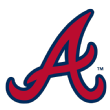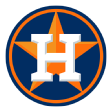The 2020 MLB playoffs are down to the final two teams, with the Los Angeles Dodgers headed to the World Series to face the Tampa Bay Rays.
This is your place for the stars, turning points and takeaways for every game in both league championship series.
Key links: Inside return of fans for NLCS | Schedule, bracket


National League Championship Series Game 7: Los Angeles Dodgers 4, Atlanta Braves 3
What it means: Cody Bellinger, who spent most of this summer fighting through his mechanics and most of this series running into hard outs, turned on a two-seam fastball out over the plate in Sunday's seventh inning, launched it 400 feet to right field and watched it soar, providing the Los Angeles Dodgers with what became the winning run in Game 7 of the NLCS.
The Dodgers, down 3-1 to the upstart Atlanta Braves in this series, won three in a row to get back to the World Series for the third time in four years, a fitting destination for a star-studded team that dominated the shortened regular season. They'll meet the Tampa Bay Rays and search for their first title since 1988 in a Fall Classic that begins Tuesday from Globe Life Field in Arlington, Texas.
It looked bleak for the Dodgers early.
Dustin May, functioning as an opener, began his start by throwing eight consecutive balls and giving up an RBI single. Tony Gonsolin, counted on to pitch the bulk of the innings, allowed a long home run to Dansby Swanson in the second and an RBI single to Austin Riley in the fourth, forcing Dodgers manager Dave Roberts to deploy one of his best relievers -- Blake Treinen -- with 18 outs remaining.
That's when L.A.'s defense came through. With two on, none out and the Braves leading by a run later in that fourth, Justin Turner produced a miraculous double play, diving to tag Swanson as he tried to score and turning around quickly to get Riley as he attempted to take third, helping Treinen escape the half-inning without any additional runs. In the fifth, Mookie Betts leaped against the right-field fence and robbed Freddie Freeman of a solo home run -- Betts' third game-changing play in as many days.
One inning later, Enrique Hernandez clobbered a 424-foot game-tying homer against A.J. Minter, becoming the first pinch hitter with a game-tying homer in a winner-take-all postseason game. An inning after that, Bellinger put the Dodgers ahead with his homer off Chris Martin, joining Yadier Molina (2006 NLCS) and Aaron Boone (2003 American League Championship Series) as the only players with a go-ahead homer in the seventh inning or later in Game 7 of a league championship series.
That was enough for the young Julio Urias, who breezed through the final three innings to hold it down.
Clayton Kershaw is now lined up to start Game 1 of the World Series. -- Alden Gonzalez
Next up: World Series, Game 1 vs. the Rays, Tuesday, 8 p.m. ET
Previous games


American League Championship Series
Game 7: Tampa Bay Rays 4, Houston Astros 2
What it means: Breath easy, Astros haters. The Tampa Bay Rays have won the American League pennant, shutting down Houston in Game 7 of the ALCS to clinch the franchise's second trip to the World Series.
The Rays survived Houston's bid to become just the second MLB team to come back from a 3-0 series deficit and win, just as countless baseball fans were slapping their collective forehead over a potential return to the World Series for the sport's most infamous club. The Rays showed up and simply did everything right against the team that fessed up to doing a whole lot of wrong in years past.
Whatever your lingering feelings about the Astros might be, try to keep your emotions centered around a terrific Tampa Bay ballclub. Randy Arozarena not only hit his seventh home run of the postseason in Game 7, but with 47 total bases since the regular season ended, he has a chance to set a record in that category for the playoffs with another series left to tack on numbers. Charlie Morton, pitching against many of the same players he helped to the infamous 2017 title with Houston, was on his game Saturday, throwing up zeroes and pitching into the sixth inning before turning the game over to the almost impenetrable Tampa Bay bullpen.
To put an exclamation on the point: The Tampa Bay Rays outplayed the Houston Astros over the past week, if only by a little, and cemented their status as the best team in the American League this season. Pandemic-shortened season, bloated 16-team playoff, no matter. The Junior Circuit will have the right team representing it in the Fall Classic. -- Bradford Doolittle
Game 6: Houston Astros 7, Tampa Bay Rays 4
What it means: After the Astros held on to beat the Rays, Houston became just the second MLB team ever to force a Game 7 after trailing in a series 3-0.
If you're Tampa Bay and you can set aside the doubt that creeps in when you've dropped three in a row, you can realize that you entered the series as a heavy favorite because, over the course of the season and through the first two rounds of the playoffs, you established yourselves as the American League's best team. The Rays remain the favorite to win the series. But it sure doesn't feel that way.
If you're the Astros, now that you've forced one more game, you feel like you've got one foot in the World Series. For some -- the Astros haters -- it's a nightmare scenario. For others, especially those rooting for Dusty Baker to land his elusive first World Series title as a manager, this is shaping up as quite a story. -- Doolittle
Game 5: Houston Astros 4, Tampa Bay Rays 3
What it means: The Rays still have the series lead, but suddenly the Astros are out-Raysing the Rays -- and because of that, Houston has already made history.
Carlos Correa mashed a game-winning homer to dead center field off Rays closer Nick Anderson in the bottom of the ninth, as the Astros beat the Rays to force a Game 6. In doing so after dropping the first three games of the series, Houston became just the fourth of 38 teams to fall behind 3-0 in a series and come back to force a sixth game. Only the 2004 Red Sox, who came all the way back from a 3-0 hole to beat the Yankees in the ALCS, have forced a Game 7. -- Doolittle
Game 4: Houston Astros 4, Tampa Bay Rays 3
What it means: Astros starter Zack Greinke, likely a future Hall of Famer, was into his third trip through the Tampa Bay lineup. Houston had just grabbed a two-run lead on a George Springer homer in the bottom of the fifth, but three singles loaded the bags with two out and Michael Brosseau at the plate.
Manager Dusty Baker had been to the mound already that inning, with red-hot Randy Arozarena at the plate. In 2020 baseball, especially in the postseason, you figured that was it for Greinke. It's just the way things are done these days.
Greinke had faced 22 batters and thrown 87 pitches when Brosseau stepped to the plate. Baker had gone to the mound and returned to the dugout alone. Greinke was still around to strike out Brosseau with a changeup. Score one for Dusty's gut. -- Doolittle
Game 3: Tampa Bay Rays 5, Houston Astros 2
What it means: Game 3 was an even more exaggerated version of the first two games. The Astros played well except for one disastrous sequence. This one was the worst so far: The top of the sixth featured yet another Jose Altuve throwing error and two key hit by pitches, as Tampa Bay put up five runs that were more than enough for the stifling, crowd-sourced Rays run-prevention machine. Tampa Bay improved to 29-1, including the playoffs, when scoring at least five runs this season.
The Astros once again hit a lot of balls hard -- probably more than the Rays did when you dig into the metrics. But whether it was great defensive plays by Kevin Kiermaier in center field or canny positioning of the Tampa Bay infield or the sheer randomness of the universe, the Rays have been doing it all season, all postseason and certainly all series. -- Doolittle
Game 2: Tampa Bay Rays 4, Houston Astros 2
What it means: Game 2 came down to two mistakes: Jose Altuve's throwing error that kept the Rays' first-inning rally alive -- one of two uncharacteristic throwing miscues in the game for the Astros' second baseman -- and the curveball that Lance McCullers Jr. left up and Manuel Margot deposited over the center-field fence for a three-run homer.
The Astros put runners on through most of the game, but for the second straight contest, they couldn't come up with the big, multirun blow to pierce the Rays' protective armor. The bottom line was the Astros played well but made a couple of mistakes. The way the Rays are playing right now, that's all they need to beat you. -- Doolittle
Game 1: Tampa Bay Rays 2, Houston Astros 1
What it means: Randy Arozarena continued his transmogrification into the best fastball hitter on the planet with his fourth homer of the postseason, Mike Zunino stroked a highly rare RBI single to put the Rays ahead, and Tampa Bay followed Blake Snell's five innings with four shutout frames by four relievers. Along the way, the Rays improved to 16-5 in one-run games this season, a .762 winning percentage, including the postseason. According to ESPN Stats & Information research, that's currently the best one-run winning percentage by any team over a season. Ever. -- Doolittle
NLCS
Game 6: Los Angeles Dodgers 3, Atlanta Braves 1
What it means: On Saturday afternoon, in the 3-1 victory that forced a Game 7, it was Walker Buehler repeatedly pumping fastballs past the league's best fastball-hitting team with the bases loaded and nobody out. It was Mookie Betts exploding near the right-field fence to make one of the most miraculous catches of the year at one of its most critical junctures. It was Blake Treinen retiring Freddie Freeman and Marcell Ozuna, two of baseball's most menacing hitters in 2020, while they represented the tying run in the seventh inning. And it was Kenley Jansen, demoted as the closer earlier this postseason, locking down the final three outs to force a Game 7. -- Alden Gonzalez
Game 5: Los Angeles Dodgers 7, Atlanta Braves 3
What it means: This wasn't just about the Dodgers saving their season via something that looks like a typo (Will Smith homered off Will Smith) or Corey Seager going supernova this October and dropping two more homers himself. No, Game 5 of the NLCS was about the Dodgers showing life and resolve and mustering a comeback against a Braves team that looked on the verge of delivering another postseason disappointment to Los Angeles.
Perhaps the Dodgers' victory just delays the inevitable. Atlanta still leads the series 3-2. On Saturday, the Braves will start Max Fried, who beat the Dodgers in Game 1. If a game on Sunday is necessary, Atlanta will turn to Ian Anderson, who hasn't allowed a run all postseason. Just like the Braves were still up 2-1 following the Dodgers' blowout Game 3 win, the advantage remains theirs until it doesn't.
And yet the shot Dodgers catcher Smith hit off Braves left-hander Smith in the sixth inning turned a 2-1 deficit into a 4-2 advantage, and when Seager walloped his second of the night, it rendered moot the game's first three innings, when A.J. Minter, Atlanta's opener, punched out seven Dodgers and turned their offense inert. The Dodgers looked dead until they didn't, and now comes their chance to do what Houston did Friday: force a Game 7 to decide the league champion. -- Jeff Passan
Game 4: Atlanta Braves 10, Los Angeles Dodgers 2
What it means: If the Braves were going to defeat the Dodgers in this NLCS and eliminate a star-studded team that won 43 of 60 regular-season games, they needed to be about more than just Max Fried and Ian Anderson in their rotation. In Game 4, Bryse Wilson -- a 22-year-old who had accumulated only 15⅔ innings this season -- showed they might be.
Wilson, pitching amid wind gusts that were blowing in at up to 15 mph, tamed a Dodgers lineup that scored a record-breaking 11 runs in the first inning of Game 3, limiting them to a solo home run and no other hits through the first six innings. It paved the way for his high-powered offense to come alive in the bottom of the sixth. -- Alden Gonzalez
Game 3: Los Angeles Dodgers 15, Atlanta Braves 3
What it means: Maybe all the Dodgers needed was an encounter with Josh Tomlin.
The Braves brought Tomlin into the ninth inning of Game 2, hoping to give their high-leverage relievers a break with the outcome seemingly in hand. But the Dodgers proceeded to pound Tomlin, scoring four times and putting the tying run on third base before Braves closer Mark Melancon induced a game-ending groundout.
In the aftermath, the Dodgers harped on the importance of getting a longer look at the vaunted bullpen of their opponent and hoped to ride the momentum of their near miracle. Then they went out and scored 11 runs in the first inning of Game 3, setting a postseason record. By the end of it, Cody Bellinger, Max Muncy and Joc Pederson -- the three powerful left-handed hitters who struggled throughout the year -- had each produced multihit games that included a homer. -- Gonzalez
Game 2: Atlanta Braves 8, Los Angeles Dodgers 7
What it means: When the Braves shut out the Cincinnati Reds and the Miami Marlins in four out of five postseason games, it was dismissed as a good pitching staff taking advantage of poor offenses. But now Max Fried and Ian Anderson have limited the Dodgers to one run in 10 innings in back-to-back starts. Plus, before a spirited ninth-inning comeback in Game 2, eight Braves pitchers limited the Dodgers to 10 hits and eight walks in 17 innings, striking out 20. All of which proves that this pitching staff is deep -- regardless of the injuries suffered in its rotation -- and this team is elite.
In both games, the Dodgers had the opposing starter on the ropes early and did not capitalize. In both games, that has come back to haunt them. Maybe they found something in that four-run ninth inning, which ended with Cody Bellinger 90 feet from tying the score. -- Gonzalez
Game 1: Atlanta Braves 5, Los Angeles Dodgers 1
What it means: So much for the Dodgers running completely roughshod through the 2020 MLB postseason. That notion ended at 10:23 p.m. local time Monday, when the barrage ended. It started 16 minutes earlier, with a 98 mph fastball delivered by Blake Treinen, a reliever tasked by the Dodgers with securing big outs. The ball happened to wind up in the nitro zone of Austin Riley, the Braves' young third baseman/left fielder, and when balls at 98 meet his bat there, they tend to come to rest very far away.
In this case, it was 448 feet, though that number wasn't as vital as what it represented: the go-ahead run in what had been a taut, well-pitched Game 1 of the NLCS. That hit opened the floodgates, with other Braves feasting off Dodgers relievers in a victory. -- Passan
